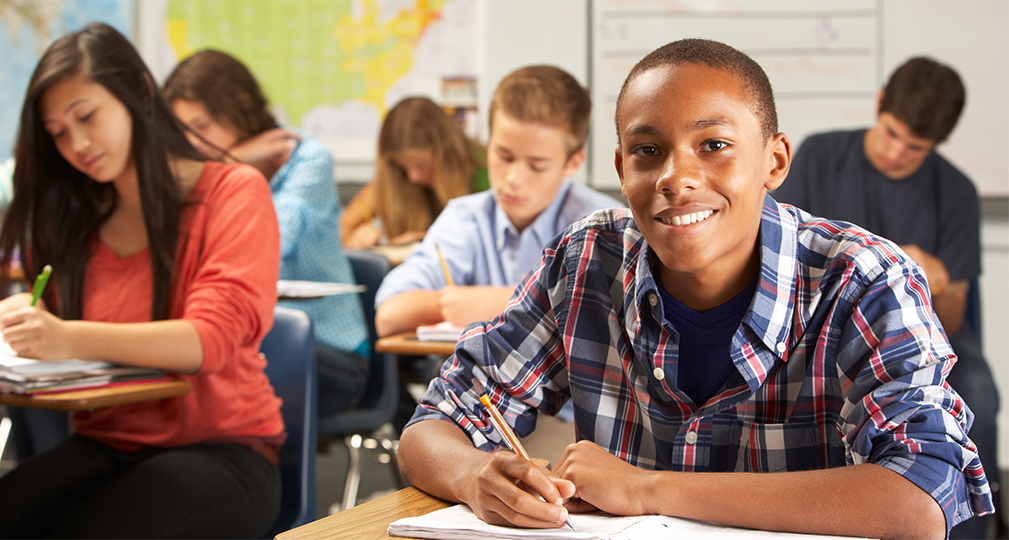Fundraising Ideas to Help Save Temecula Schools and Programs
Fundraising Ideas to Help Save Temecula Schools and Programs
Blog Article
The Effect of College Environments on Academic Success and Personal Health
The school atmosphere dramatically influences both scholastic success and personal health, encompassing elements such as physical design, classroom environment, and social characteristics. The design of instructional rooms, including natural illumination and ergonomic furniture, can boost students' concentration and convenience. Additionally, the top quality of teacher-student partnerships and the nature of peer interactions play critical functions in fostering an environment for learning and psychological assistance. Comprehending just how these various factors interaction to shape student results increases crucial questions regarding enhancing academic setups for holistic development. How can institutions purposefully boost these elements to much better support their students?
Physical Layout and Design
Exactly how does the physical design and style of a school effect academic success? The arrangement and aesthetic of a school environment can considerably influence trainees' understanding results. A well-designed institution format promotes convenience of activity, minimizes diversions, and cultivates a sense of security and belonging. Broad corridors and plainly marked locations promote smooth shifts in between courses, decreasing lateness and disturbance. In addition, tactically placed common locations urge social communications, which are vital for social and emotional growth.
All-natural lights and efficient air flow systems are essential in improving cognitive feature and minimizing absenteeism. Research studies have revealed that class with enough all-natural light improve student concentration and reduce sensations of drowsiness. Ergonomic furniture tailored to students' needs can avoid physical discomfort, enabling for extended focus and involvement in academic activities.
Accessibility to outside areas and visually pleasing surroundings likewise play an important role - Save Temecula Schools. Green areas and well-maintained school premises give opportunities for physical exercise and psychological relaxation, both of which are very important for keeping high degrees of scholastic performance. In essence, an attentively made physical environment can offer as a stimulant for academic quality, fostering an ambience that sustains both teaching and learning
Classroom Atmosphere
An atmosphere that fosters a feeling of safety, inclusivity, and shared regard encourages pupils to involve even more proactively in their understanding procedures. The setting of a classroom, including elements such as lighting, noise levels, and seating setups, can considerably affect student focus and motivation.
Furthermore, the class atmosphere ought to sustain a culture of collaboration and open communication. They are extra likely to engage deeply with the product and develop critical assuming abilities when students feel comfortable revealing their ideas and asking inquiries. Peer communications and team activities can enhance discovering by fostering and offering diverse viewpoints synergy
Additionally, establishing consistent regimens and clear assumptions can develop a structured environment that enables pupils to focus on their studies. By decreasing uncertainty and giving a predictable structure, pupils can better handle their time and duties. Inevitably, a favorable class ambience not just enhances academic performance but also contributes to the overall well-being of pupils, preparing them for future academic and individual undertakings.
Teacher-Student Relationships
Building on the significance of a positive classroom environment, the relationships in between educators and students play a critical function fit scholastic success. A healthy and balanced teacher-student relationship fosters a learning environment where trainees feel valued, recognized, and sustained, which dramatically boosts their inspiration and engagement. When students perceive their teachers as friendly and empathetic, they are most likely to get involved actively in class and seek aid when needed, adding to a much deeper understanding of the subject matter.

This trust enables trainees to reveal their concepts and issues easily, fostering a joint discovering environment. In essence, solid teacher-student partnerships are a keystone of academic success, playing an essential function in both scholastic achievement and individual advancement.
Peer Interactions
Peer communications substantially affect scholastic success by forming a pupil's cognitive and social development. Within the school setting, peer partnerships function as a foundational element for learning and individual development. Positive peer communications can improve a trainee's motivation and involvement in academic tasks through joint knowing and common support. When students interact in team settings, they exchange concepts, address problems collectively, and create important assuming skills. Such communications foster a feeling of belonging and neighborhood, which is important for psychological well-being and scholastic perseverance.

Effective peer interactions additionally add to the growth of necessary life skills, such as interaction, collaboration, and problem resolution. These social competencies are essential for both scholastic success and individual well-being, underscoring the importance of fostering positive peer characteristics within the college environment.
After-school Activities
Involving in extracurricular tasks plays a crucial duty in a pupil's scholastic success and individual growth. Research study continually shows that pupils that participate in extracurricular tasks tend to accomplish greater academic performance.
In addition, extracurricular involvement fosters a sense of belonging and neighborhood, which is necessary for personal health. Taking part in group tasks permits trainees to construct and enhance socials media, improving their social and emotional knowledge. These communications are important for developing social abilities that are valuable in both future and why not find out more scholastic expert settings.
Additionally, extracurricular activities offer a constructive outlet for students to discover their passions and interests beyond the standard curriculum. This exploration can bring about the discovery of brand-new skills and potential profession paths, better motivating trainees to engage even more deeply in their academic work. To conclude, the role of after-school activities expands past simple entertainment; they are indispensable to fostering an alternative instructional experience that advertises both academic success and individual growth.
Conclusion
Attentively designed physical layouts and class, along with positive teacher-student relationships and constructive peer communications, dramatically boost trainee inspiration and engagement. These components collectively highlight the value of producing and maintaining ideal school settings for the benefit of pupils' academic and individual development.
Inevitably, a positive class ambience not only enhances academic efficiency yet likewise contributes to the general well-being of pupils, preparing them for future educational and personal undertakings.

Report this page